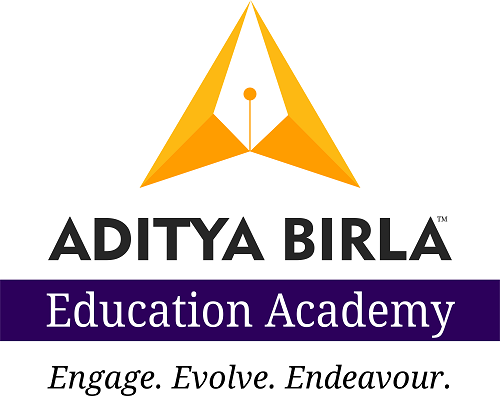
What is NEP 2020?
The year 2020 was a game-changer for everyone, across all domains and aspects of life. Just as the country emerged from the trials and tribulations of a complete lockdown and altered aspects of living at supersonic speeds, the Central Government of India announced a new National Education Policy 2020, on the 29th of July ‘20; almost as if to say – “This too shall pass and life must go on!”
A well-defined and futuristic education policy is a must for every country because education is the key driver of economic and social progress. Different nations have adopted varied education systems by taking into account their respective traditions and culture. NEP 2020 too is an outcome of good preparation and rigorous research (drawing upon the strengths of the ancient Indian gurukul system as well as world-renowned & effective practices from the world over). Celebrated as the most significant education policy that the Government of India has introduced in the past 30 years; it aims to completely overhaul the country’s education system and bring it to par with international standards. 
Upon implementation, the evolved and enriched educational system will minimise the stress on young students, reduce annual school dropout rates, produce skilled personnel who would be self-sustained, and eventually lead to quality improvement and quality in services. Needless to say, it will holistically nurture the spirit of the child and develop them to be ready to face an unknown world with competencies that address the futuristic workforce needs anywhere in the world, with SDG4, GCED, and 21st-century skills.
However, Aditya Birla Education Academy the best teacher training institute in India is all set to train teaching professionals as per the requirements of NEP 2020.
Implementation
The success of NEP 2020 and the pace of its implementation depends largely on how successfully the government, universities, and schools overcome the practical challenges facing it. Given that there are over 350 million Indians today in school-going or college-going age groups, the NEP calls for large-scale implementation of a magnitude never before attempted anywhere in the world. For two and half years since its unveiling, talks centered around how to properly implement this grand vision and ensure that it is translated into concrete action in schools across the country over the next 15-20 years (the timeframe proposed for full compliance).
In the interim 2-year period, many state governments and private schools ‘started implementing’ the NEP (in the best way that they understood), to demonstrate their faith and commitment to it, leading to a potpourri of revamped pedagogical and assessment systems with equally varied outcomes. The framers of this historic document worked diligently on a detailed implementation framework - the National Curriculum Framework, of which the first implementation guide (NCF-FOUNDATIONAL STAGE) was finally made available in October 2022.
The 4 Main pillars
While there are many provisions in NEP 2020, the success of the programme rests on 4 main pillars that schools need to embrace and immerse themselves from the coming Academic Session 2023-24, depending on which stage of implementation they are in – starting from scratch / proceeding from what they tried out / progressing with success towards compliance.
(1) Changing the pedagogical structure
The diagram below shows the new pedagogical structure and the age criteria for the same have also been set:
Foundational Level (ages 3 to 8 yrs) comprising Pre-school / KG (3-6 yrs) + Grades 1-2 (6-8 yrs) 
Preparatory Level (ages 8 to 11 years)
Middle Level (ages 11 to 14 years)
Secondary Level (ages 14 to 18 years)
This structure does NOT require any changes to the physical infrastructure of schools. It proposes operational, functional, and pedagogical demarcations.
Schools are required to redesign their Structural Framework into these 4 levels, with qualified sectional heads/coordinators, each with expertise and depth of knowledge to handle the academic planning, changed TL processes, revised assessments, integrated activities, etc. for that level.
(2) Skill upgradation & CPD of teachers
The success of the NEP 2020 programme rests solely on the successful upskilling of teachers to match the curricular & pedagogical reforms. Just picking up online certifications of 50 hrs per year won’t help. Schools need to organise result-oriented CPD sessions with hand-holding by trainers to ensure that the learning gets translated into classroom practice. As per NEP 2020, teacher eligibility is also being revamped; apart from B Ed becoming a full 2-year programme, schools need to prepare for:
- Teachers in the Foundational Level have exposure to ECCE and Primary schooling. It is advised to keep an overlap of KG / Grade 1 teacher to ensure that ECCE pedagogies of play-based, activity-based, inquiry-based learning with art and craft, drawing, painting, alphabets, numbers, counting, drama, music, puppetry, etc continue into the next grade. The focus at this stage is on the socio-emotional-ethical development along with the development of communication, early language, and literacy.
- Those teaching till Grade 5 are TET1 qualified.
- Those teaching till Grade 8 are TET2 qualified
- A proposed TET 3 will now qualify teachers to teach grades 9 to 12.

Also, schools need to build towards ensuring that teachers teach the core subject of their own graduation and build into the annual academic plan - group teaching, reflective teaching, academic research, paper presentations, and action research to build expertise.
(3) Transforming the teaching-learning process
There will be a major reduction in the content in the syllabus for each grade, and there is a proposal to teach in the mother tongue/local language (where possible) to ensure understanding. Schools are advised to adopt a top-down approach of shifting from syllabus completion to defining learning goals, curating classroom instruction through innovative pedagogy mapped to age-appropriate learning outcomes; knowledge-skills-attitudes; ensuring experiential / project-based learning aligned to real-life situations, thereby shifting from ‘Content & Course completion’ to ‘Competency and Confidence’.
Annual planning must NOT adhere to chapters in textbooks; rather they must be aligned to the Minimum Learning Levels syllabus for each Grade. They must also integrate subject streams, aesthetic & performing arts, sports games, and technology to create a holistic learning experience for students, along with the component of digital literacy, scientific temper, and computational thinking, across levels as applicable. Needless to say, concerted efforts need to be made to ensure that the TL process caters to the individual interests, needs, and pace of the learners. A challenge no doubt, but with micro-planning, collaborative learning, buddy system, flipped techniques, and system-based regular monitoring and tweaking, it is doable.
The proposal of forming school complexes/clusters in a particular area can benefit institutions immensely to implement the proposal of multilingual instruction in the Foundational & Preparatory years, free choice of subjects and vocational training and internship from Middle school years into higher education - by sharing teachers, experts, community involvement and infrastructural resources.
(4) Revamping assessments
NEP 2020 proposes a major shift in the structure assessments as well as the nature of assessments. It advocates a multi-layered and multi-sourced 360o assessment. Schools need to plan for the reduction in formal time-bound exams (like the weekly, fortnightly 20/50 mks tests) and an increase in formative assessments, driven by the schema of competency-based assessments mapped to multi-dimensional rubrics of achievement. Schools are also advised to start working on
- Foundational Literacy and Numeracy – which will be assessed by the Govt as Key Stage 1 Assessment at the end of Grade 3. Schools must ensure that the guidelines for FLN are met and their students are ready to ace the assessment with ease.
- The other two Key Stage Assessments will be taken at the end of Grades 5 and 8, mapped to the learning goals and minimum learning standards at the 5th & 8th end milestones. The school results of all Key Stage Assessments shall be posted in the public domain to showcase the level of achievement by each school.
- As of now Grade 10 & 12 board examinations will continue; however, the nature of questions being asked in the Board papers is shifting from the rote order to Comprehension and Competency Based Assessment questions (2023 board exams have already factored in 20% CBA questions in grade 12 and 30% in Grade 10).
- A Comprehensive Report 360o Report Card with feedback and assessment by the Teachers, Parents, self-assessment by the student, and peer assessment, reflecting quantitative and qualitative aspects.
- Schools should use Learning Management Systems for making lesson plans and individualized evaluation tests, to check the academic progress and overall development of each student.

In summary, the National Education Policy 2020 is in many ways just what India needed to blossom into the world’s largest and youngest workforce in the coming years. To realize the dreams it contains, we must overcome substantial execution challenges in a sustained manner, commit ourselves to it 100%, lower institutional walls, and collaborate to choose ‘service for the common good’ over profit-making for years and decades to come. ***
Links that readers may like to explore:
NCF – FNDL : https://ncert.nic.in/pdf/NCF_for_Foundational_Stage_20_October_2022.pdf







